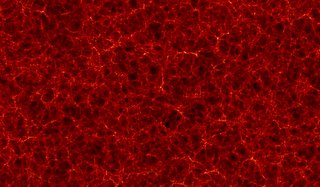The Weatherman

*
Tomorrow's Weather?
I just saw the Weatherman. It's one of those movies that you probably can wait to rent, but I saw it anyway. Michael Kane, the successful Pulitzer Prize winning father of the lost, in his own mind, loser, weatherman Nicolas Cage, tells his son, "when a problem comes along, you must whip it, before the cream sits out too long, you must whip it."
Cage gets it, kind of, but only after he loses his father, his family, and his fear of being the person he actually is.
It's climate change, as forecast
By Geoff Strong
The Age
October 31, 2005
A year of climatic disasters is now persuading politicians to accept the warnings of 20 years ago.
IF WAR is said to be a means of teaching Americans geography, what then is needed to teach them and fossil-fuel profligate sidekicks like ourselves about global warming?
After the US has faced death and massive economic loss from two large hurricanes, and after Wilma gave the area another kicking last week, it seems the message is starting to register.
In one of the greatest of shocks, in Australia federal Environment Minister Ian Campbell has conceded the debate is over: humans have to accept their actions are warming the planet and the consequences will probably be disastrous.
But why have we taken so long to take the problem seriously and do something about it? Scientists who know about the greenhouse effect have been, by any reasonable standard, certain for two decades.
One of the problems appears to be that the scientific definition of certainty sounds like equivocation to the ordinary public, particularly to their elected and often scientifically ignorant representatives.
The world's greatest gamblers, the insurance industry, didn't need that level of certainty. It had been banking on scenarios being right since at least 1995.
In March that year, the world's biggest re-insurer, Munich Re of Germany, stunned the industry by saying manmade warming was increasing natural disasters. The head of the company's geoscientific research group, Dr Gerhard Berz, said: "Today there can be no doubt the growing number and intensity of windstorms, thunderstorms and floods all over the world are attributable to the rapid increase of air and sea temperatures."
In hindsight, perhaps scientists should have worded their predictions differently and conveyed more certainty to the public because two decades have been lost. By appearing uncertain, they might have protected their backsides, but allowed a whole army of vested interest groups such as the fossil-fuel lobby and right-wing think tanks to attempt to lever apart the argument and create 20 years of delay.
Journalists who wrote what scientists believed were pilloried too. I was taken to the press council in 1999 by a reader for writing about global warming a decade on. My alleged crime was I hadn't given oxygen to those who didn't believe.
The complaint was dismissed."
As have the warnings.
Here is another one that should put a little dent in your tranquility.
Higher ocean acidity seen as threat to food chain
By CONOR BERRYSTAFF
Cape Cod Times
October 30, 2005
WOODS HOLE - In 50 to 100 years, rising ocean acidity levels might reach a point where the shells of some marine organisms could dissolve or fail to grow altogether.
This scenario sounds like a scene from a scary sci-fi flick, but researchers say this potential phenomenon is directly related to rising carbon dioxide levels in the ocean that could upset the balance of marine ecosystems.
Ocean acidification is occurring at a faster rate than originally predicted, with the potential to harm marine life and disrupt the ocean's food web, according to Scott Doney, a marine chemist with the Woods Hole Oceanographic Institution.
''The food web is going to look very different in 50 to 100 years if we continue to burn carbon dioxide at current levels,'' Doney said.
Within that time span, the team concluded in a study published last month in the journal Nature, there could be ''severe consequences'' for so-called marine calcifying organisms that build external skeletal material from calcium carbonate, the basic building block of limestone.
''Up until now, we've mostly thought of climate change in terms of changes in temperature or rainfall,'' Doney said, adding that the ocean is equally susceptible to climate modifications.
The ocean serves as a big CO2 repository, Doney said. And the research conducted by his team and a host of others ''shows the negative consequences of the ocean being a big sink,'' he said.
''We have recognized for several decades that the buildup of carbon dioxide in the atmosphere from fossil-fuel combustion will lead to ocean acidification,'' Doney said. ''We know it's due to human activities; there's no controversy to that.''
When a problem comes along, you must whip it,
before the cream sits out too long,
you must whip it.
So get it straight,
go forward,
your cream is in danger.
The Weatherman.
Home
What it is About
Earthfamily Principles
Earthfamilyalpha Content
Links
LANGUAGE TRANSLATIONS
art courtesy of Clay Bennett
















